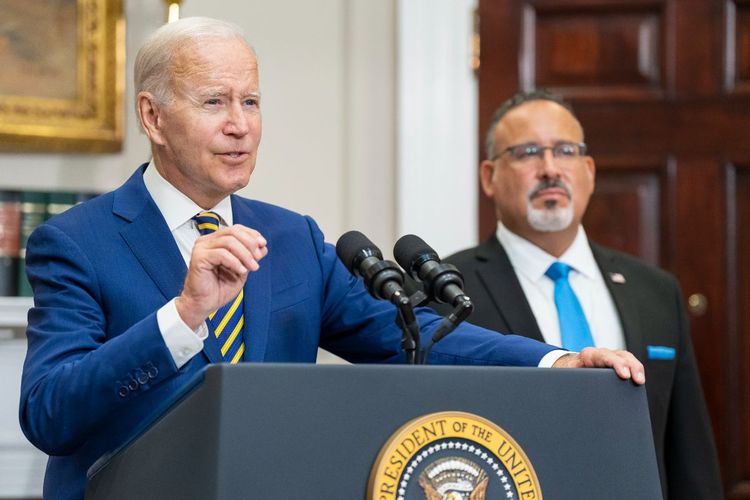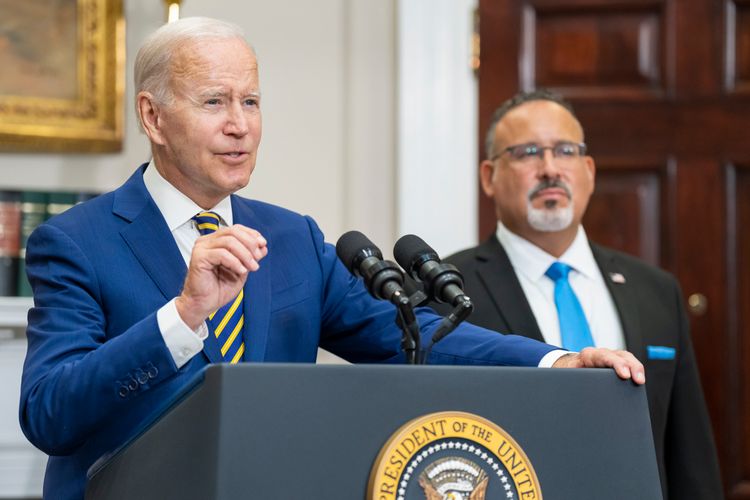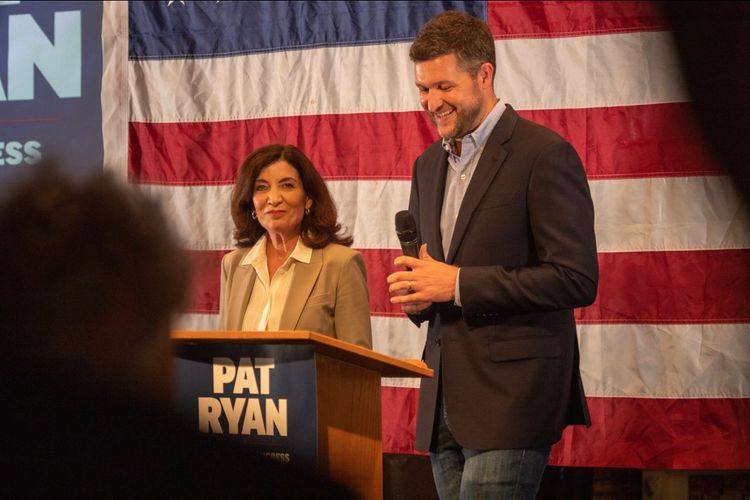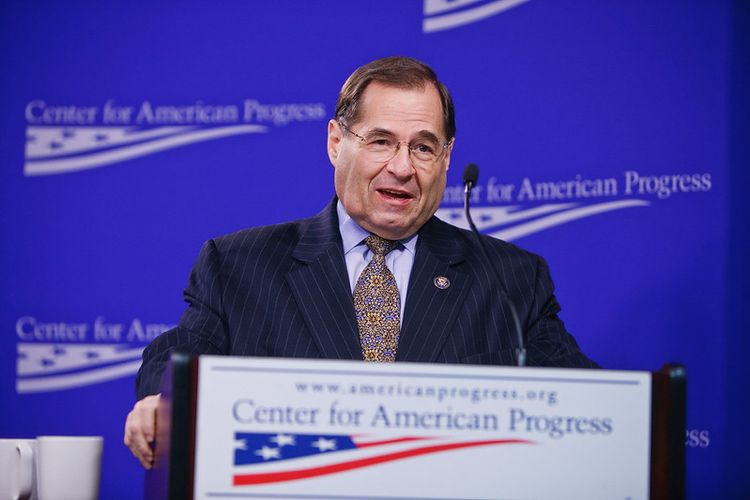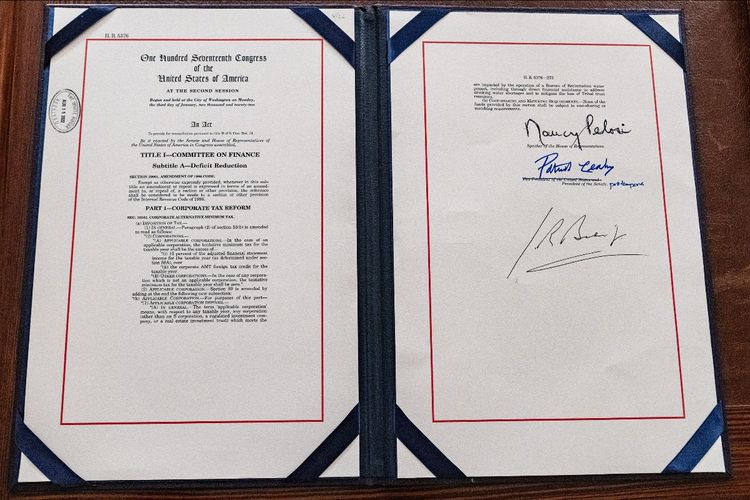Wake Up To Politics - March 1, 2017
Wednesday, March 1, 2017
628 Days until Election Day 2018
1,356 Days until Election Day 2020
Good morning! Reporting from WUTP world HQ (in my bedroom), I'm Gabe Fleisher: this is your wake up call.
Email: gabe@wakeuptopolitics.com
Website: wakeuptopolitics.com
Twitter: @WakeUp2Politics
Facebook: Wake Up To Politics
White House Watch
- Trump Changes Tone in Address to Congress President Donald Trump sought to reset in his address to a joint session of Congress on Tuesday night, leaving behind many of the controversies that have defined his young Administration and instead painting a brighter picture of America.
- Much of Trump's message was not much different from his campaign stump speeches, relying on similar slogans: "Make America Great Again," "Buy American and Hire American," "Drain the Swamp," etc. However, his tone underwent a substantial change, from speaking about "American carnage" in his Inaugural address to "American greatness" on Tuesday.
- For the first time since he launched his campaign for the White House, Trump aimed to appear "presidential," saying things he has waved off in the past. The President opened by invoking Black History Month and the "work that still remains" in civil rights, before "condemning hate and evil in all its forms" in reference to threats to Jewish Community Centers and the shooting of two Indian men in Kansas.
- Later, one of the best moments of his address came when President Trump praised the late Navy SEAL William "Ryan" Owens, who was killed in an operation in Yemen in the first week of the Trump Administration. Trump called Owens "a warrior and a hero" who is "etched into eternity," earning him several minutes of bipartisan applause for Owens' widow, who was sitting with First Lady Melania Trump. In one of his few instances of straying from the teleprompter (a device he has declined to use in the past), Trump remarked of the applause: "Ryan is looking down right now, you know that, and he’s very happy...I think he just broke a record."
- In recent days, Trump has been slow to speak out against the anti-Semitic acts across the country (and has been blamed, in part, for racial and religious divisions that have emerged), and has also been criticized for his response to Owens' death, which he blamed on "the generals" earlier Tuesday.
- Gone were his references to the "fake news" media, or crowd sizes, or illegal voting. Trump did not even address the controversy of his staff's contacts with Russia, which has engulfed much of his Presidency. Candidate Trump, the bombastic figure who insulted judges, Gold Star parents, and war heros, dissipated (at least for the night). Instead, almost all of the language he used was positive, closing with a message of unity ("We all bleed the same blood. We all salute the same flag") and of personal empowerment ("I am asking everyone watching tonight to seize this moment and believe in yourselves, believe in your future.")
- "The time for trivial fights is behind us," Trump declared, perhaps signaling an end to battles over crowd sizes and other small matters that he has waged since taking office.
- However, the President did not delve into policy specifics in the address. He spent much of the speech ticking off the actions he has made thus far, selling his achievements to a nervous Congress and a divided electorate. Once again, he did exaggerate some of those successes, taking credit for corporate job expansion that took place during the Obama Administration.
- Trump also made the case for his top legislative priority, repealing the Affordable Care Act. "Tonight, I am...calling on this Congress to repeal and replace Obamacare with reforms that expand choice, increase access, lower costs, and at the same time, provide better Healthcare," the President said, declaring that "Obamacare is collapsing, and we must act decisively to protect all Americans."
- Trump laid out his five guiding principles for an Obamacare replacement: calling for Americans with pre-existing conditions to be covered, for Americans to get "the plan they want, not the plan forced on them by the Government," for flexibility on Medicaid expansion in the states, for protections against "unnecessary costs that drive up the price of insurance," and for giving Americans "the freedom to purchase health insurance across State lines."
- The President also asked Congress for a $1 trillion infrastructure bill, although he did not expand much on the request, and outlined parts of his soon-to-be-released budget request, which includes a dramatic increase in military spending.
- Much of the speech also became a vehicle to sell his immigration policies to the American people, as he referred to people killed by illegal immigrants, with their relatives sitting in the First Lady's box. Trump announced the creation of a Victims Of Immigration Crime Engagement (VOICE) office, to boos from Democratic lawmakers. "My Administration has answered the pleas of the American people for immigration enforcement and border security," he said, continuing: "We want all Americans to succeed –- but that can't happen in an environment of lawless chaos. We must restore integrity and the rule of law to our borders."
- The President also referred to terrorist attacks in America and across the globe, making the case for "proper vetting" of those entering the U.S. "We cannot allow a beachhead of terrorism to form inside America -- we cannot allow our Nation to become a sanctuary for extremists," he said.
- Much of Trump's speech represented evolutions in his language, from declaring "we strongly support NATO" (after calling the organization "obsolete" just weeks ago) to just a brief mention of ISIS to stopping short of calling for mass deportation or of insisting Mexico would pay for a border wall.
- Notably, President Trump also showed much better delivery of sweeping lines he has previously eschewed in favor of simpler language. Trump opened and closed the speech with references to what America would look like at its 250th anniversary, which is in 2026. "Hopefully, the 250th year for America will see a world that is more peaceful, more just and more free," Trump said. "And when we fulfill this vision; when we celebrate our 250 years of glorious freedom, we will look back on tonight as when this new chapter of American greatness began."
- The President's Schedule President Trump plans to take his message on the road in the latter part of this week, speaking in Virginia tomorrow and in Florida on Friday. Today, he continues lobbying Congress for his top priorities:
- At 10:30am, the President will receive his daily intelligence briefing in the Oval Office.
- At 12:30pm, he will have lunch in the Roosevelt Room with House and Senate leadership.
- At 4pm, Trump will hold a legislative affairs strategy session in the Oval.
- Finally, at 6:30pm, he will have dinner with Secretary of State Rex Tillerson in the White House Residence.
- Initially, it had been widely reported that the White House planned to release its updated version of the "travel ban" executive order, which prohibited immigration from seven majority-Muslim nations but was put on hold by a federal court. However, CNN reported on Tuesday night that the signing will take place later in the week instead, as administration officials want to prolong positive reviews of Trump's address.
- According to Politico, the revised order will only affect people applying for visas from six countries (Iraq will be dropped), meaning the status of those who already hold green cards or visas will no longer be changed. The new executive order will reportedly still temporarily stop the U.S. from admitting refugees, although the provision ending the Syrian refugee program permanently will be removed.
Capitol Hill News
- Today in Congress Both chambers of Congress will convene at 10am today.
- The Senate After Leader remarks, the Senate will hold 20 minutes of debate on the nomination of Rep. Ryan Zinke (R-MT) to be Secretary of the Interior, before a 10:30am vote on final confirmation. Zinke's nomination was advanced on Monday in a 67-31 vote, with 15 Democrats joining all present Democrats in supporting the pick.
- 10 of those senators are facing re-election in 2018, six of whom will be running in states won by President Trump: Sens. Joe Donnelly (IN), Heidi Heitkamp (ND), Joe Manchin (WV), Claire McCaskill (MO), Bill Nelson (FL), and Jon Tester (MT).
- Zinke is a freshman congressman, known for his avid opposition to sale of federal lands; he has been praised for his experience with Interior issues, but criticized for votes on oil and gas drilling and other issues, as well as past comments on climate change, which have run counter to environmentalists.
- The Interior Secretary nominee will be the 15th of Trump's Cabinet-level nominees to be confirmed; the next picks who will be considered are Housing and Urban Development Secretary-designate Ben Carson and Energy Secretary-designate Rick Perry.
- After the Zinke vote, the Senate will hold 10 minutes of debate on Carson, followed by a procedural vote to advance his nomination.
- The House Meanwhile, the lower chamber is scheduled to consider three bills today, all continuing Speaker Paul Ryan's focus on tearing away regulations:
- the Searching for and Cutting Regulations that are Unnecessarily Burdensome (SCRUB) Act, creating a bipartisan commission to identify regulations that should be repealed;
- a resolution overturning an Obama Administration-era rule to require employers keep records of work-related injuries and illnesses;
- and a bill requiring the Office of Information and Regulatory Reform (OIRA) to submit reports on all proposed regulations.
Daily Data
- How the Speech Went Over After days of poll after poll showing his approval ratings historically low, the President rebounded on Tuesday, according to a new CNN/ORC poll of people who watched the speech:
- 78% had a positive reaction (including 57% who said they had a "very positive" reaction). 21% had a negative reaction.
- 69% said the policies proposed by President Trump "would move the country in the right direction," compared to 58% of them who said that before the speech.
- 69% said the speech "made them feel more optimistic about the direction of the country."
- Trump's policies also saw boosts in support: 72% said he went in the right direction on the economy, 70% said he went in the right direction on terrorism, 6% said so on taxes, 62% on immigration, and 61% on health care.
Today's Trivia
- Today's Question On Tuesday, the trivia question was: which President delivered the longest State of the Union address (in minutes)?
- The answer: the famously verbose Bill Clinton, whose final State of the Union address in January 2000 lasted one hour, 28 minutes, and 49 seconds.
- Naturally, Clinton occupies the entire Top Four in longest State of the Union addresses, speaking for one hour, 24 minutes, and 58 seconds in 1995; one hour, 18 minutes, and 40 seconds in 1999); and one hour, 16 minutes, and 43 seconds in 1998.
- President Trump clocked in at 1 hour and 10 seconds on Tuesday, also on the longer side.
- GREAT JOB...Sarah M-M, Steve Gitnik, Joan Zucker, Andy Weigley, Marilyn Schapiro, Jim Wilbat, Marlee Millman, Brad Chotiner, Dr. Mark Smith, Randy Fleisher, and Joe Bookman!
*All Times Eastern
For more on Wake Up To Politics, listen to Gabe on NPR's "Talk of the Nation", St. Louis Public Radio, the Political Junkie podcast, and on StoryCorps; watch Gabe on MSNBC's "Up with Steve Kornacki"; and read about Gabe in Politico, the Washington Post, Independent Journal, St. Louis Post-Dispatch, Salon, the Globe, and the St. Louis Jewish Light.





